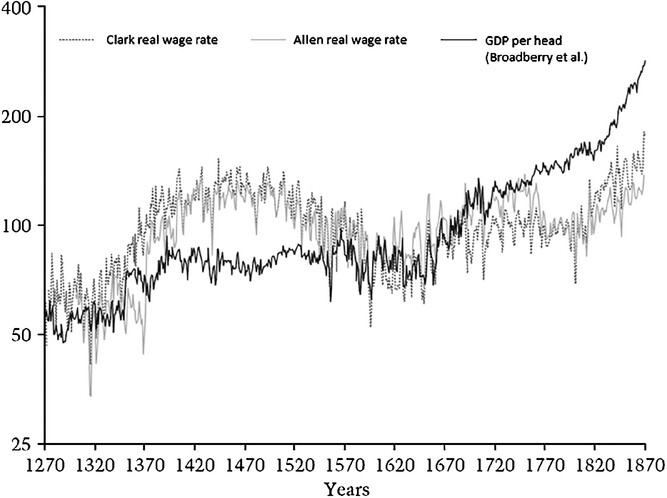Authors: Chris Briggs, Ben Jervis, Alice Forward, Tomasz Gromelski, Matthew Tompkins
SUMMARY: We use lists of household goods and chattels forfeited to the crown to investigate changes in material living standards in the later fourteenth and fourteenth centuries. We argue that the evidence shows relatively little change in this period and place the findings in context using equivalent evidence from the sixteenth century.
Abstract:
The later fourteenth and fifteenth centuries have long occupied an intriguing and contested place in discussions of England's long-run economic development. One key issue around which debate has coalesced is the living standards of the population as a whole and of different groups within it. We contribute to this debate by bringing forward new evidence on the material living standards of peasants, artisans, and wage-earners in the countryside and small towns. This consists of lists of goods and chattels forfeited to the crown by felons, fugitives, and outlaws. This material, found in the archive of the royal escheator, is not without its problems. Yet, a careful quantitative analysis of both the overall valuations of forfeited goods and the incidence of specific items in such lists of forfeitures shows that there was relatively little change in the later fourteenth and fifteenth centuries. This is surprising, given the traditional characterization of this period as a time of rising consumption during the ‘golden age of the labourer’. This later medieval evidence is contextualized through the analysis of similar forfeiture data relating to the sixteenth century.
Published on Economic History Review, (2025), pp. 1–28. https://doi.org/10.1111/ehr.70052
Open access and free to download

FIGURE 1
Daily real wage rates of unskilled building workers and GDP per head, 1270–1870 (log scale, mean of 1270–1870 = 100). Source: Broadberry et al., British economic growth, fig. 6.07, p. 258.

